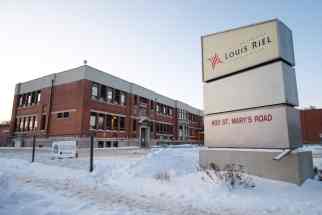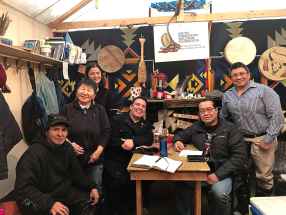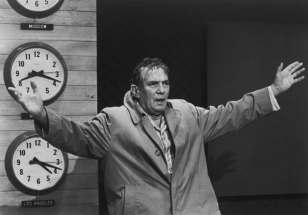Strum, Joey, strum Remake of original song spawned Joey Gregorash's greatest hit, but is only one chapter of a successful career as Juno-winning musician, radio DJ and TV host
Read this article for free:
or
Already have an account? Log in here »
To continue reading, please subscribe:
Monthly Digital Subscription
$0 for the first 4 weeks*
- Enjoy unlimited reading on winnipegfreepress.com
- Read the E-Edition, our digital replica newspaper
- Access News Break, our award-winning app
- Play interactive puzzles
*No charge for 4 weeks then price increases to the regular rate of $19.00 plus GST every four weeks. Offer available to new and qualified returning subscribers only. Cancel any time.
Monthly Digital Subscription
$4.75/week*
- Enjoy unlimited reading on winnipegfreepress.com
- Read the E-Edition, our digital replica newspaper
- Access News Break, our award-winning app
- Play interactive puzzles
*Billed as $19 plus GST every four weeks. Cancel any time.
To continue reading, please subscribe:
Add Free Press access to your Brandon Sun subscription for only an additional
$1 for the first 4 weeks*
*Your next subscription payment will increase by $1.00 and you will be charged $16.99 plus GST for four weeks. After four weeks, your payment will increase to $23.99 plus GST every four weeks.
Read unlimited articles for free today:
or
Already have an account? Log in here »
Hey there, time traveller!
This article was published 31/01/2020 (2141 days ago), so information in it may no longer be current.
It’s shaping up to be a banner year for Winnipeg’s very own Mr. Entertainment.

In addition to turning the big seven-O, versatile performer Joey Gregorash will toast two other important milestones in the coming months: 45 years of marriage to his wife Janine and the 50th anniversary of a mid-winter trip to Memphis, Tenn., to record his debut album North Country Funk, a critically acclaimed project that netted him the 1972 Juno Award for most outstanding vocal performance by a male singer.
If that wasn’t enough, the former radio DJ and TV show host will return to the stage next week in a show billed as a tribute to the music of the 1960s and ‘70s.
Plunking himself down in a corner booth at the Red Top Drive Inn, Gregorash chuckles, noting his Feb. 6 all-ages concert at the Regent Casino Event Centre will mark the first time in a long time anybody has paid a dime to watch him perform live.
“I put on a show there in October 2018 but that was a private affair that was free for casino club card members,” he says, pausing to say thanks to a server filling his coffee cup. “It’s been 16 years since my last ticketed event and so far, I’ve been absolutely blown away by the response.”
The 90-minute concert promises to be a trip down memory lane, packed with songs and stories touching on his time with the Mongrels, a contemporary of Chad Allan and the Expressions and the Neil Young-led Squires, as well as his solo career. When asked how long ago he started planning the show, Gregorash, a studied drummer, doesn’t miss a beat.
“We formed the Mongrels in 1965 so if I’m being honest, the answer to your question is 55 years.”
BEGINNINGS
Gregorash, the younger of two brothers, grew up in a three-storey home on Corydon Avenue in the heart of what is now considered Winnipeg’s Little Italy. His late father Tony was an accomplished fiddle player but the second Gregorash saw the Beatles on The Ed Sullivan Show in February 1964, he parked his own bow in favour of a pair of drumsticks.
In 1965, he began jamming with guitarist John Nykon, a buddy from Little League baseball. The Wellingtons, as they dubbed themselves, were eventually joined by John MacInnis, Geoff Marrin and John Hart, at which point they changed their name to the Mongrels, a River Heights-based, R&B outfit that in no time began making a fair bit of noise on Winnipeg’s burgeoning community club scene.
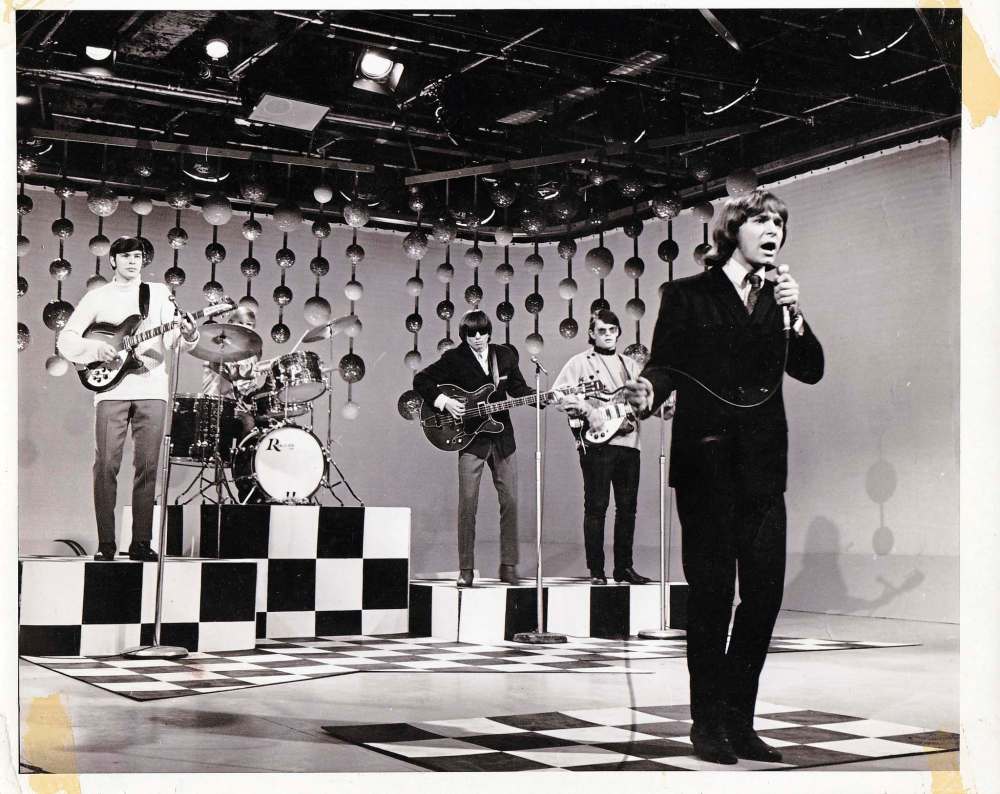
“There I was, 15 years old, playing in a band and making money, sometimes as much as my dad made driving a truck for The Bay,” says the Kelvin High School alumnus, shaking his head in astonishment.
By 1968, the Mongrels were being referred to in trade publications as “Canada’s fastest rising band,” thanks to their “great music, harmony and … fabulous stage show.” Having opened for the likes of Neil Diamond, Paul Revere and the Raiders and Tommy James and the Shondells, they eventually caught the ear of Dick Clark, the venerable host of American Bandstand, one of the most popular programs on television.
Open mic
Canada may never have had its 1972 Juno Award winner for most outstanding vocalist if it hadn’t been for failing grades.
In the Mongrels’ early days, Joey Gregorash was the teenage band’s drummer while Geoff Marrin handled lead vocals. Problem was, Marrin’s parents warned him time and time again that if his marks at school didn’t pick up, he was going to have to quit the group to concentrate on his studies. One evening, about 30 minutes before the Mongrels were due to perform at a local community centre, Marrin’s brother Dave showed up backstage, informing Geoff he’d been sent there by their father, and that Geoff was expected to return home and hit the books, pronto.
Canada may never have had its 1972 Juno Award winner for most outstanding vocalist if it hadn’t been for failing grades.
In the Mongrels’ early days, Joey Gregorash was the teenage band’s drummer while Geoff Marrin handled lead vocals. Problem was, Marrin’s parents warned him time and time again that if his marks at school didn’t pick up, he was going to have to quit the group to concentrate on his studies. One evening, about 30 minutes before the Mongrels were due to perform at a local community centre, Marrin’s brother Dave showed up backstage, informing Geoff he’d been sent there by their father, and that Geoff was expected to return home and hit the books, pronto.
Because Gregorash was the only person in the band who knew all the lyrics in their setlist, it fell on him to handle the singing chores that night, and every night going forward.
“I already sang a few songs in the set like our cover of Hang On Sloopy and an original number called Hey Baby, but yeah, before all that went down, my singing was mostly limited to a few times in school, singing with the choir,” Gregorash says.Oh, in case you feel badly for Marrin, don’t, Gregorash adds. After graduating from high school, Marrin joined the Winnipeg band Sugar ’N Spice, later Spice, a unit that had a Top 40 hit in 1969 with the single, Cruel War.
— David Sanderson
In 1968, Clark played the Mongrels’ latest single, Funny Day, penned by Randy Bachman, during the rate-a-record portion of his show, a segment when Clark would poll the studio audience, asking if they thought a particular song was going to be a hit or not.
Unfortunately, Funny Day got a thumbs-down, Gregorash says, but the amusing part of the story is when the Mongrels played the River Heights Community Centre the night that episode aired and broke into Funny Day, all the kids on the dance floor jokingly made the sound of a buzzer, the sound effect used on Bandstand when a song didn’t get a passing grade.
Gregorash left the Mongrels in 1969 when, at the tender age of 19, he was hired to co-host Young As You Are, a Winnipeg-produced TV show that showcased up-and-coming Canadian acts. Around the same time he formed the Walrus, a group that appeared at Festival Express, a travelling rock festival headlined by The Band, the Grateful Dead and Janis Joplin. In early 1970, he embarked on a solo career at the urging of Bob Burns, a record producer who thought Gregorash’s songwriting skills compared favourably to another of his clients, the Guess Who.
JODIE IS A GOOD NAME
There’s a line in the song Hey Tonight by Creedence Clearwater Revival that goes, “Jody’s gonna get religion, all night long.” When Gregorash began coming up with songs for what would become his debut album, that lyric got stuck in his head, he says, so much so that he put together a tune called Jodie, the title of which refers to a state of mind as opposed to a specific person.
“It was a term I came up with. Instead of calling somebody a hippie, I called them a jodie, which to me meant peace, harmony and freedom,” he says, noting he was “over the moon” the first time he heard the upbeat tune, which reached No. 3 on the Canadian charts in 1971, on the radio.
The follow-up single, Don’t Let Your Pride Get You Girl, didn’t match the success of Jodie but the third release, a cover of Neil Young’s Down by the River became one of Gregorash’s most enduring hits. Gregorash laughs, saying it was a total fluke Down by the River made it onto the record in the first place.
“It was our last night in Memphis, we needed to come up with one more song for the album — we had nine, our producer wanted 10 — and we were in our hotel room, having a few pops,” he says with a wink. “At some point I started playing Down by the River except for a lark, I did it the way I imagined Jose Feliciano would do it, sped up and with a Spanish accent. Right away our producer Ronny Capone — bless his heart, he’s left us — told me do it again, dropping the accent. Three hours later we’d cut the track.”
Radio personality Howard Mandshein doesn’t hesitate when asked where Gregorash ranks among Winnipeg’s rock-and-roll elite. After listing Neil Young, Burton Cummings, Randy Bachman and Fred Turner as “the gentlemen who laid the foundation,” he cites Gregorash, whose second album Tell the People came out in 1973, as being “at the top of the second level.”
“I can remember being 15 and taking public transit to go see groups like the Mongrels,” Mandshein says when reached at home. “I have the utmost respect for Joey who might just be the most talented person I’ve ever met. His ability not just to sing but to play drums… plus he did morning shows, TV; he’s absolutely brilliant.”
MEDIA MOGUL
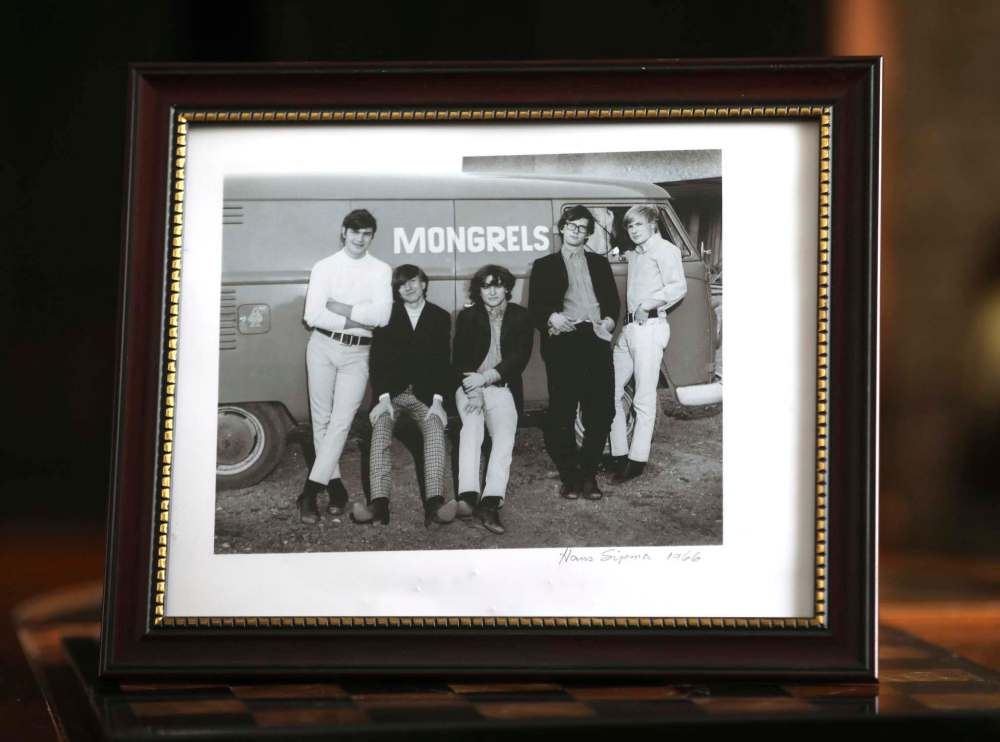
After five years of criss-crossing the country, touring incessantly, Gregorash decided to break away from that lifestyle in 1975, the same year he married Janine, whom he met in the fifth floor record department at the downtown Bay store. In need of a steady cheque, he successfully applied for a job at Tip Top Tailors’ Polo Park location. Over the phone, Ted Farr, currently the news director at AM 1150 in Kelowna, remembers the winter night he and his wife went shopping and bumped into Gregorash, whom Farr had met a few years earlier.
“I think the first thing out of my mouth when I spotted Joey selling suits was, ‘What the hell are you doing that for?’” says Farr, who, at the time, was the news director at KY58. “He told me a bit of what had happened and how he’d needed to get a job, which got me thinking.”
As luck would have it, KY58 had just established its own creative department, whose staff members were responsible for writing commercials for companies wanting to advertise on the station. Figuring how much tougher could it be to craft a radio jingle versus a hit song, Farr approached his program director, floating the idea of adding Gregorash to the mix.
“They brought him in for an interview and it must have gone pretty good because almost right away, Joey started a radio career that lasted many, many years,” Farr says.
In addition to writing award-winning jingles — in the early 1980s, a commercial he did for a local car dealership was honoured internationally, beating out an ad written by John Cleese of Monty Python-fame — Gregorash also found himself behind a microphone again, first as the morning radio host on KY58 and later on CKIS 97 FM. In 1986, when the producers at CKY-TV were trying to come up with a replacement for Funtown, a long-running, noon hour program that starred ventriloquist “Uncle” Bob Swarts, they approached Gregorash, asking if he’d be interested.
“I refer to S’kiddle Bits as a second childhood with pay,” Gregorash says, mentioning as much as he enjoyed coming up with skits and parody songs for the show — ask him about Garbage in the Morning, a ditty about trash collectors that mimics the Merrilee Rush hit Angel in the Morning — it was the relationships he formed with his viewing audience that made the show so rewarding.
“Every so often I’d get a letter from a mom or dad, telling me about what their son or daughter was going through, sometimes bullying, other times cancer,” says Gregorash, a father of three whose daughter Kayleigh died in 2008, following what he calls a catastrophic brain stem bleed. (After pausing for a few seconds, he says Kayleigh is “right here” every time he performs, tapping his right shoulder.)
“One time a mother wrote to me about her daughter who was a fan of the show, but was being made fun of at school because she’d lost all her motor skills, and had to learn how to do everything — walk, run, tie her shoelaces — again. Not only did I give her a shout-out on S’kiddle Bits, wishing her well, but 20-odd years later I was invited to sing at her wedding.”
THE NEW, OLD WEDDING SONG

In 1970, a year before North Country Funk hit record shelves, Polydor Records released the single Tomorrow, Tomorrow, a song Gregorash had co-written with Norm Lampe. Five years later, when his buddy Brian McMillan was getting married, Gregorash sang a reworked version of Tomorrow, Tomorrow during the wedding ceremony. That was the last the world would hear of the ditty, right? Wrong.
In 1982, by which time Gregorash was hosting a radio morning show, his station manager Peter Grant asked him if he’d be interested in recording a new single with all proceeds going to the Children’s Hospital Foundation of Manitoba. By all means, Gregorash replied. Within a few days he’d come up with a new composition, Love Will Bring It Together, featuring a reggae beat. That’s great, Grant told him, but they were going to need a second number for the flip side.
“Craig Fotheringham was the producer and I remember sitting in the studio with him, singing song after song, and him going, no, no, no,” Gregorash says. “Finally I said, ‘You know, there was this one song I sang in church in 1975 that got a good reaction. What if I sing that for you?’ After I was done there was silence for about 10 seconds. Then Craig leaned forward in his chair and said (bad word) man, that’s a hit.’”
Fotheringham was right, of course, only it took five years for his prophecy to come true.
In 1987, after a DJ in Ottawa began spinning an old copy of Together (The New Wedding Song), which caused the phone lines at his station to go berserk from listeners wondering where to get a copy themselves, Attic Records agreed to re-release the tune. Good move that: within weeks, the single sold 50,000 copies, hitting No. 1 in markets from coast to coast.
“For a person who thought his recording career was a thing of the past, that was pretty special,” Gregorash says, noting he can’t count the number of times people have stopped him to say they walked down the aisle to his song. “Somewhere in my house I still have a memo that was passed along to me by a radio guy from Alberta. He said a woman in Calgary had written him, saying she was driving to work when Together came on the radio. She immediately pulled over and started to weep, she was so happy she’d finally found the perfect song for her daughter’s upcoming wedding.”
BACK TO THE FUTURE

Currently in rehearsals with a crack band led by musical arranger and keyboardist Rick Boughton, Gregorash, who regularly emcees shows at the Regent Casino Event Centre, isn’t sure whether his upcoming concert will be a one-off or the start of something bigger. He dreams of putting together an unplugged show, an intimate production that would cater to 150 people tops, but if the opportunity presented itself to play more halls in Western Canada, perhaps in tandem with other Canadian acts from his generation, that’d be great, he says.
“Or if turns out next week’s show is it, that’s OK, too,” he continues, adding he’s still getting the hang of social media, now that he has a Twitter and Facebook account to maintain. “Look, I know I didn’t have the musical career that Bachman or Cummings did but I’m fine with that. I’m good with my little pee in the ocean. Besides, this show isn’t about a comeback, it’s about getting back to my first love, which is entertaining. I think it was Garth Brooks who said hearing the applause and laughter from the audience is like a drug. It really is. It’s a wonderful drug.”
david.sanderson@freepress.mb.ca
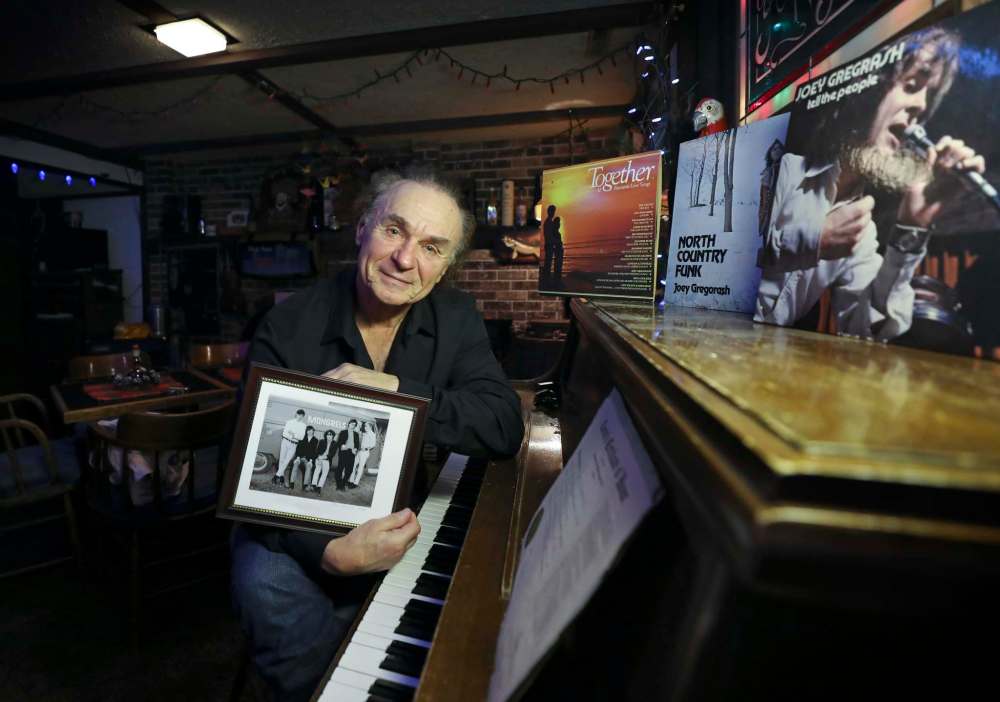


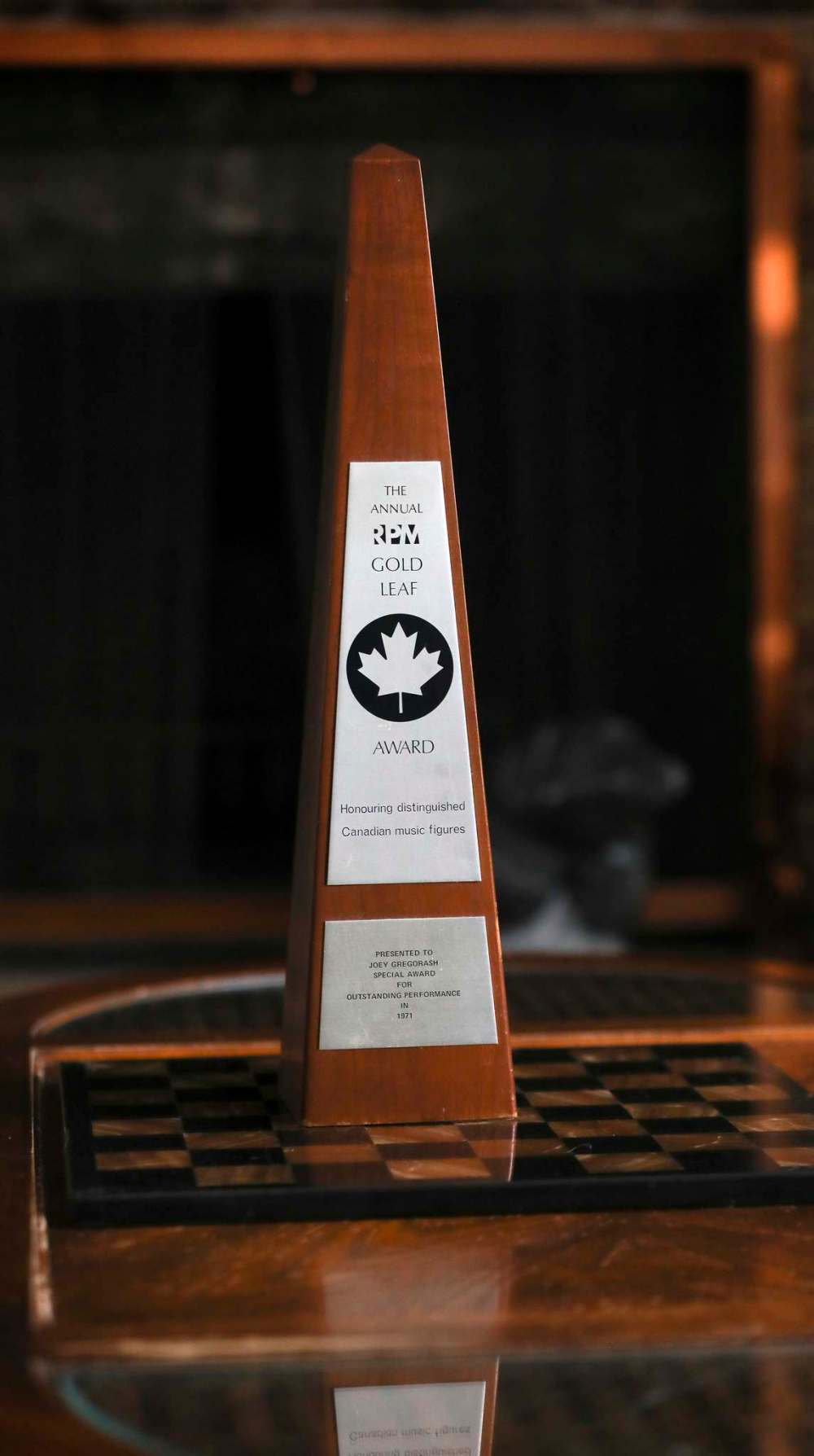
Dave Sanderson was born in Regina but please, don’t hold that against him.
Our newsroom depends on a growing audience of readers to power our journalism. If you are not a paid reader, please consider becoming a subscriber.
Our newsroom depends on its audience of readers to power our journalism. Thank you for your support.
History
Updated on Friday, January 31, 2020 7:27 PM CST: Fixes typo.

